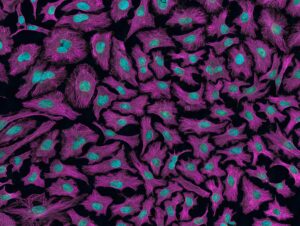
The public radio show “On the Media” recently devoted its entire hour to an insightful and poignant episode on cancer and how we talk about it, simply and appropriately named “The Cancer Show.”
It actually first aired in March as the first of a two-part series (part two is here), but I missed it, so I’m grateful for the October rerun.
Unlike most episodes, this one did not focus on a particular recent story or even on several recent stories in the news. Rather, producers took a big picture approach that every journalist who might ever write about cancer should listen to.
In fact, I couldn’t tear myself away even to enter the house — I sat and listened to the entire hour in my parked car in my own driveway. (Yes, it was an hour-long “Driveway Moment.”) The guests delved into the language we use in discussing cancer, in hospitals, among ourselves, within our families and (of course) in the media.
The show opened with Siddhartha Mukherjee, the Pulitzer Prize-winning author of The Emperor of All Maladies, who provided some historical context about one of the earliest mentions of cancer. It was an apparent case of breast cancer in ancient Egypt, and he described the fascinating way that one queen’s cancer led history to take a left turn (no doubt one of many such moments in history).
Host Brooke Gladstone then talked with Jakob D. Jensen, an associate professor of strategic communication at the University of Utah, about cancer communication in the media. Jensen pointed out that federal research funding often follows media coverage, but that media coverage does not necessarily correlate with the prevalence of a cancer. Did you know that bladder cancer is ranked sixth most common cancer, while leukemia is the 10th? Yet bladder cancer is all but ignored while leukemia cancer receives much more attention and funding.
“If you want to be a health journalist, you’ll see more breast cancer and leukemia stories. How do you actively interject your framing if you don’t know incidence?” Jensen asked rhetorically. He also discussed how media coverage influences treatment, screening and prevention of cancer, some of which will be familiar to health journalists and some of which I found surprising. All these insights are useful to the journalist writing about cancer.
Later in the episode we meet David Grover, a boy with a tumor in his jaw who became a media sensation, appearing in dozens of news stories and on many Ellen episodes — until he was “cured” and the media demands became darker and more insistent… and finally tapered off entirely. Yet now he lives with the effects of the treatment, the effects not generally discussed in the media, his parents explain.
“They [the media] just want the good part,” his mom said, explaining that their family was not warned about all the effects of the treatment. “It’s like signing the agreement for your iPhone; you can’t process it all,” she said. “The radiation he had continues to seep into his mind and body.”
Gladstone also dug down into the words often used to discuss cancer, such as the problems with the war metaphor and the term “survivor” – detested by so many people who have had cancer and now show no evidence of the disease.
“Battle language” is the top metaphor used in journalism about cancer but it can be inaccurate and unhealthy, as one guest explained, so what do we use instead? Susan Gubar, a professor emerita of English and women’s studies at Indiana University and author of “Memoir of a Debulked Woman: Enduring Ovarian Cancer,” discussed other words that have become part of the dialogue about cancer, such as “previvor,” “chemoflage,” and “scanxiety” – made-up terms to get closer to the reality of cancer.
She and Gladstone also discussed alternatives to the term “survivor” (my favorite was the tongue-in-cheek “undead”), how family member and friends can avoid accidently causing pain when talking with someone with cancer, and the use of terms like “slash, burn and poison” to replace “surgery, radiation and chemo.”
This is a show I’ll listen to again. I wish I could make every health journalist do the same.










